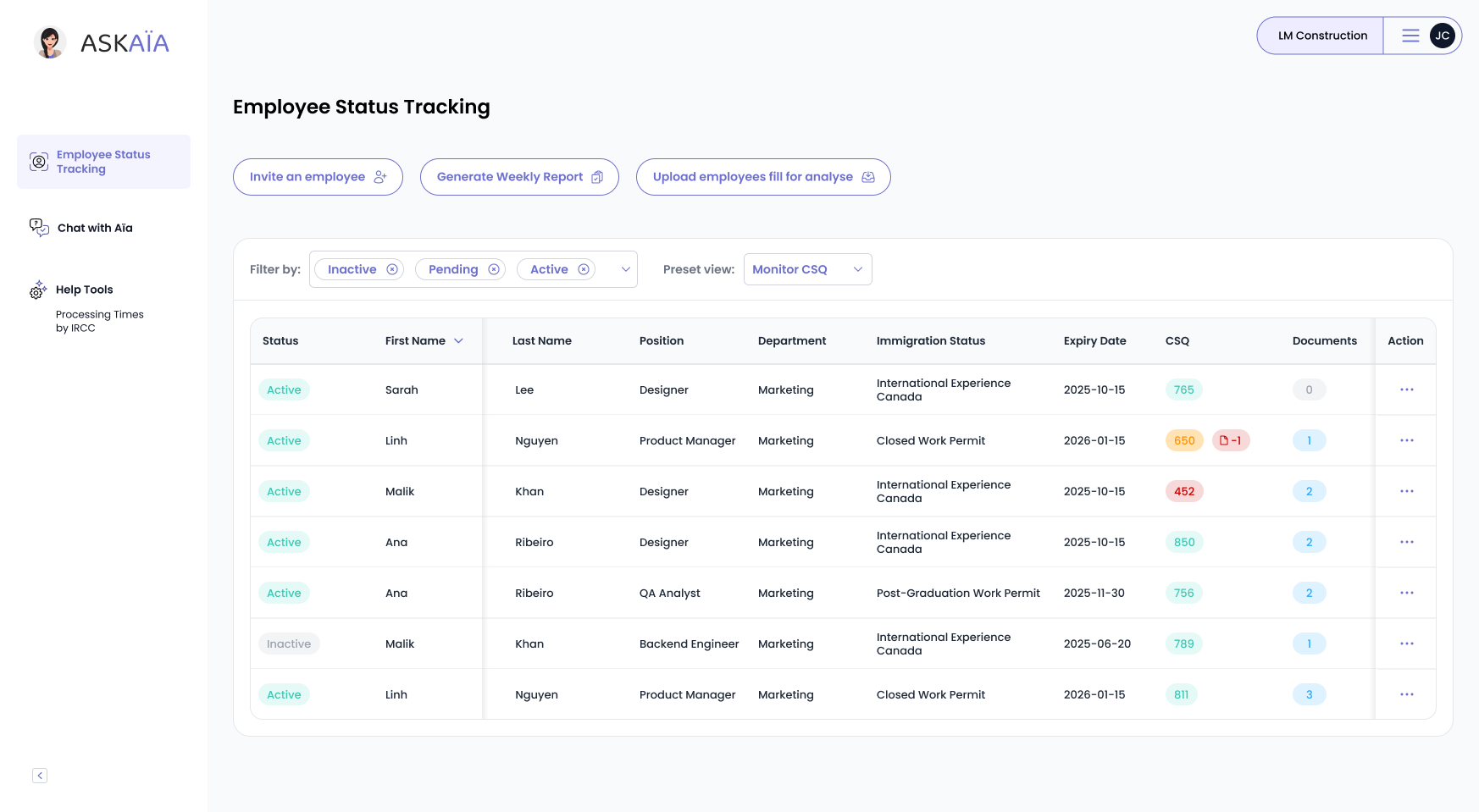Caregivers in Canada without legal status just got a second chance. A new PR policy could change lives for those who entered before Dec 16, 2021. Plus: why Alberta is rejecting a key federal permit plan, and how one entrepreneur is helping newcomers thrive.
1. Top Story: Out-of-Status Caregivers Get a Lifeline to PR
Out of status in Canada but still working in care? A new public policy opens the door to permanent residency—even if you lost your status. If you entered before Dec 16, 2021, this could change everything. But spots are limited. Here's how to act fast.
Key Takeaways
-
TOne-Time Opportunity: PR access for caregivers without valid status.
-
Strict Cut-Off Date: Must be in Canada since Dec 16, 2021.
-
Family Covered: Include spouses and kids—even if they’re also out of status.
Why Canada Is Offering PR to Out-of-Status Caregivers
Canada depends on home care workers—especially those caring for children and the elderly. But too many have lost their legal status due to permit gaps or complex rules. These workers stayed. They kept helping families. And now, Canada is offering a way to stay for good.
This new policy gives them a shot at permanent residency. No need for current status. No need to apply for refugee protection. Just proof of past legal entry and work experience. For background on regular options, see our guide to Home Care Worker Immigration Programs.
Who Qualifies and How to Apply for PR in 2025
To be eligible, you must have entered Canada on or before December 16, 2021, held a work permit in the past, and currently be without work authorization. You're also eligible if you’re classified as a visitor—but not if you’ve made a refugee claim or are under a removal order.
Applications are submitted online under the Home Child Care Provider or Home Support Worker pilot categories. Each pilot accepts only 140 applications under this policy. Act fast. Want to see how this fits Canada’s bigger immigration push? Check our full report on Canada Immigration 2025-2027.
What It Means for Immigration
If you’re a caregiver without status, this policy could be your path to stay in Canada legally—with your family. But spots are limited and timing is critical.
Not sure if you qualify? Aïa reviews your entry date, permit history, and family details in seconds. You’ll get a go/no-go decision and clear next steps—plus tailored tips to avoid mistakes. It’s the fastest way to take advantage of this rare opportunity. Use Aïa to check your eligibility and start your application today.
2. Alberta’s Focus: Prioritizing Economic Needs Over Federal Policy
Alberta is choosing to opt out of the 2025 federal work permit initiative for Provincial Nominee Program (PNP) candidates. The province says national allocations limit its flexibility to respond to regional labour demands, signaling a clear push for autonomy in economic immigration planning.
Key Takeaways:
- Alberta will not join the 2025 federal PNP work permit facilitation policy.
- The province cites limited federal allocations as a key concern.
- Alberta aims to retain control over how it meets labour market needs.
3. Success Snapshot: Karla Briones Empowers Newcomer Entrepreneurs in Canada
Karla Briones, a Mexican-born entrepreneur in Ottawa, founded the Immigrants Developing Entrepreneurs Academy to guide newcomers in launching successful businesses. Through her coaching, she has supported hundreds of immigrant-led ventures, boosting local economies and promoting inclusive growth across Canada.

Let’s get your demo started
Book a demo
You May Also Like
These Related Stories

Canada in 5: Decoding Immigration Language Tests
In this edition, we're tackling the high stakes of Canada's immigration language tests, the innovative solutions Alberta is employing to boost its eco …

Concerns Over Canadian Immigration Program Promotion in Home Care
A recent immigration initiative, particularly in the home care sector, is attracting significant attention, but aggressive promotion by recruiters rai …

Canada Slows Down: Immigration Tightening Shrinks Population Growth
In the first quarter of 2025, Canada’s population grew by just 0.6%. It's the lowest rate in four years. The reason? Immigration rules are getting tig …
